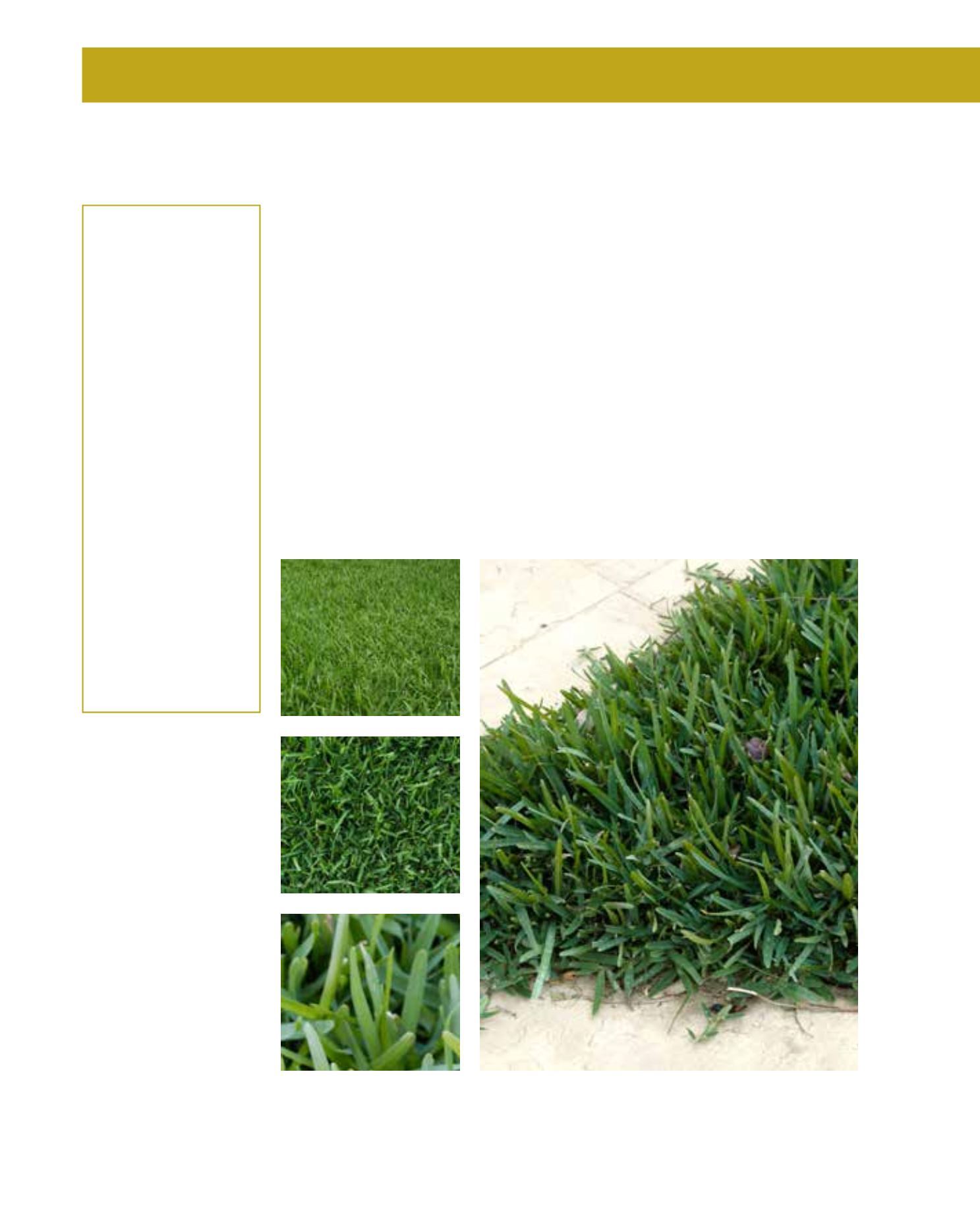

GENERAL
Origin
:
temperate,
sub-Mediterranean,
Mediterranean
Vigour
:
normal growth
rate
Humidity
:
semi-humid, very
humid
Propagation :
direct sowing,
division
Maintenance :
moderate
CONDITIONS
Urban climate :
resistant
Dessication :
vulnerable
Stagnant water :
vulnerable
Irrigation
:
high
Salinity/ppm :
high (5000 ppm)
Hardiness
:
-3°C
SHAPE
Type
:
grasses
Height
:
0.03 m-0.15 m
Spread
:
0.1 m-0.3 m
Foliage
:
deciduous
FLOWER
Colour
:
light brown
Size
:
12 cm
Period
:
June - July
FRUIT
Type of fruit :
caryopsis
St. Augustine Grass or Buffalo Grass, originating in South Africa, is popularly used for lawns
in tropical and subtropical regions. In Arriyadh, it has proved to be excellent for planting un-
der trees, because it tolerates shade and remains lush green during winter. The grass stolons or
runners form a dense mat of leaves and flattened stems up to 20 cm high with erect, branching
culms up to 50 cm; the leaves are stiff with broad, flat blades rounded at the tips. S. secundatum
grows in well or poorly drained soils, from sandy loams to light clays; its habitat is on calcareous
sands near the sea. Able to survive with low fertility, it requires lawn fertilising to look good. It is
tolerant of soil salinity and is moderately drought-tolerant, though prefers regular irrigation. It is
more tolerant of cold and frost than many tropical grasses; it is available in varieties bred for their
shade and cold tolerance as well as resistance to pests and diseases: e.g. Captiva (R), Sapphire
and Seville. Typically propagated by plugs, sprigs or turf, seed is now available commercially. St
Augustine is excellent for private garden lawns in Arriyadh, although it is less drought-tolerant
than Bermuda grass. S. secundatum is prone to a range of nematodes and fungal diseases such
as brown patch, grey leaf spot, and St. Augustine Decline caused by a mosaic virus. A low- to
medium-maintenance grass, it keeps down most weeds and other grasses. Extremely tolerant of
mowing, it makes a good ground cover for soil conservation and sand stabilisation.
285
Stenotaphrum secundatum,
Poaceae
Buffalo Grass,
St. Augustine Grass
















